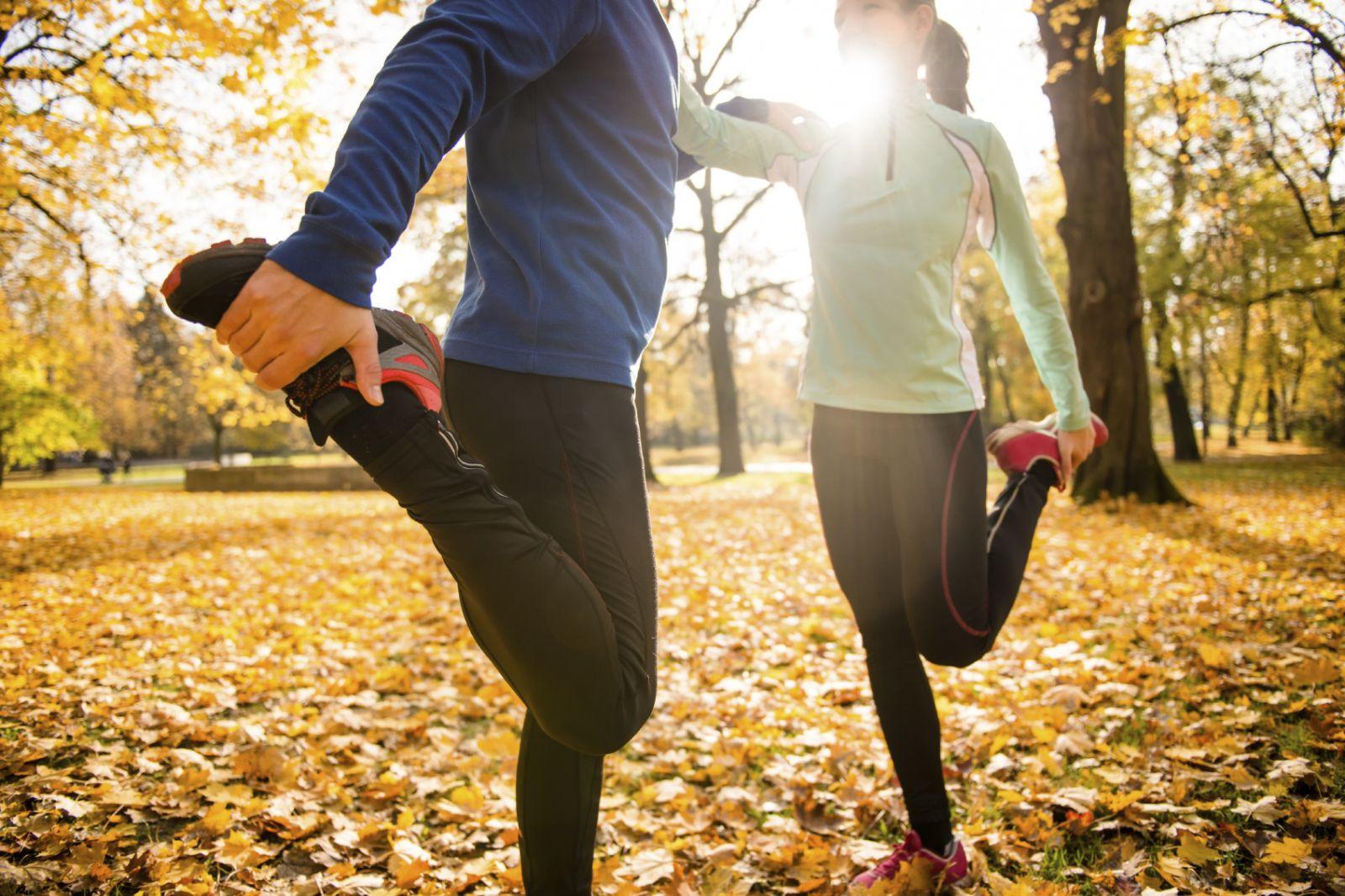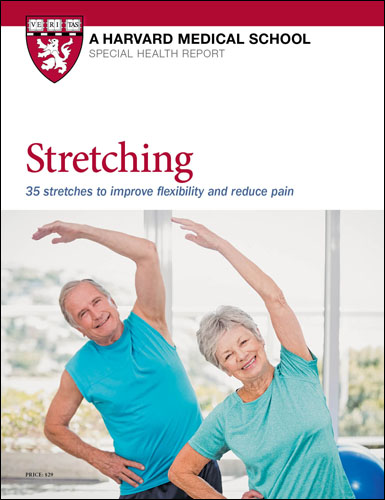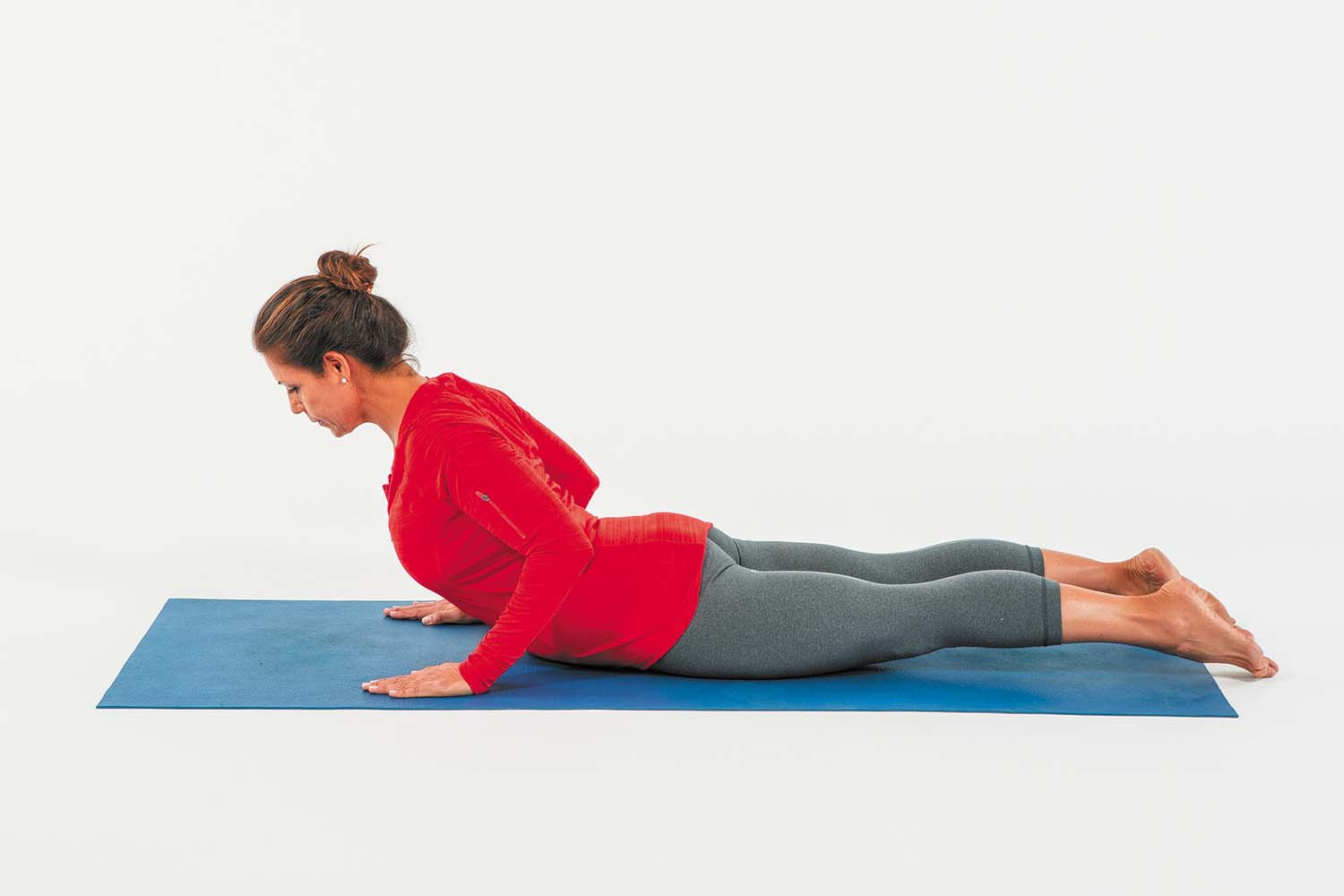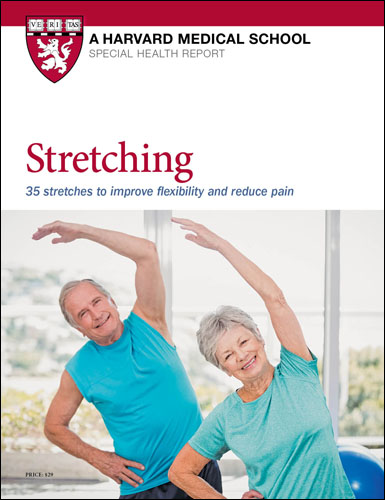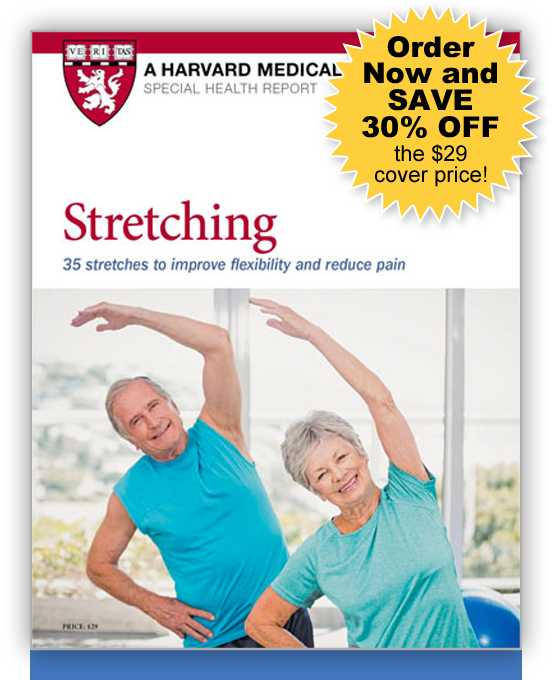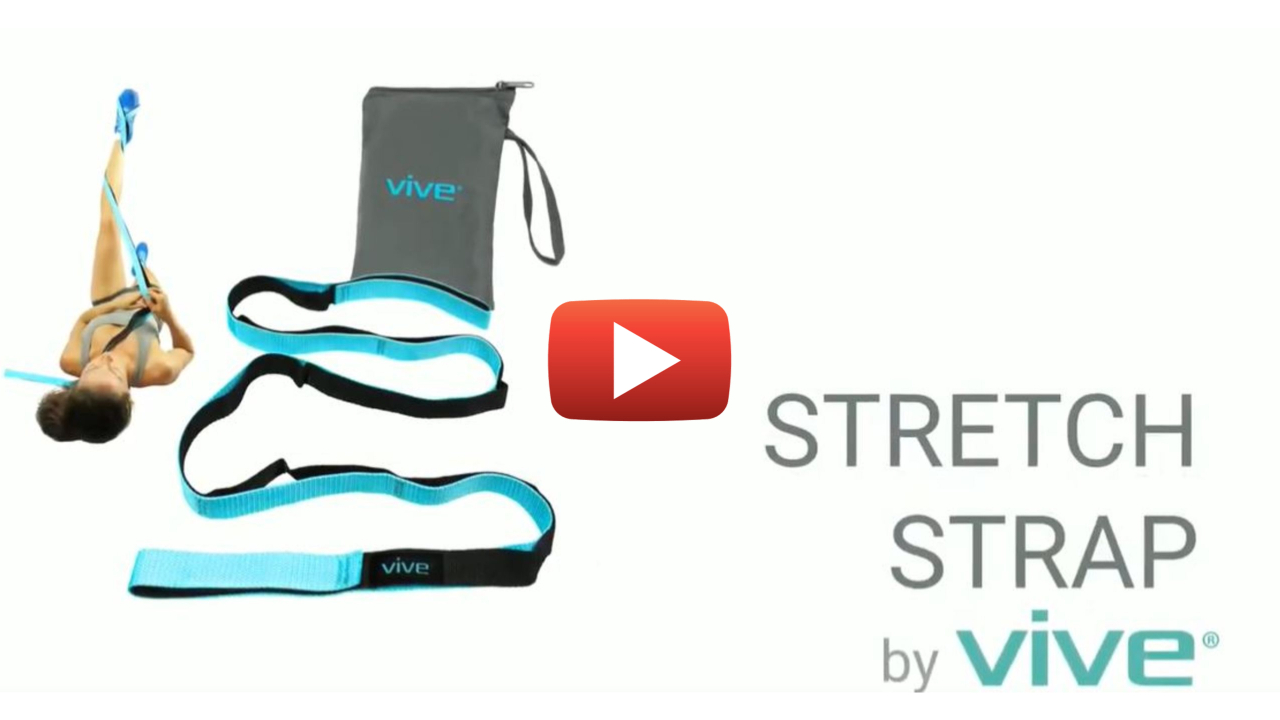Streching and Flexibility
------------------------------------------------
The ideal stretching routine
Stretching promotes flexibility and helps your joints maintain a healthy range of motion—and in doing so, also lowers the chances of joint and muscle strain. But how often should you stretch? How long should you hold a stretch? And how many times should you do each stretch? A panel of experts convened by the American College of Sports Medicine (ACSM) reviewed a wide range of studies to help answer these questions. Stretching has been studied much less rigorously than other forms of exercise, so the science is not as strong. But, based on the evidence, the panel agreed that:
To learn more about improving your flexibility, read Stretching, a Special Health Report from Harvard Medical School. Image: Martinan/Getty Images
|
Six tips for safe stretches
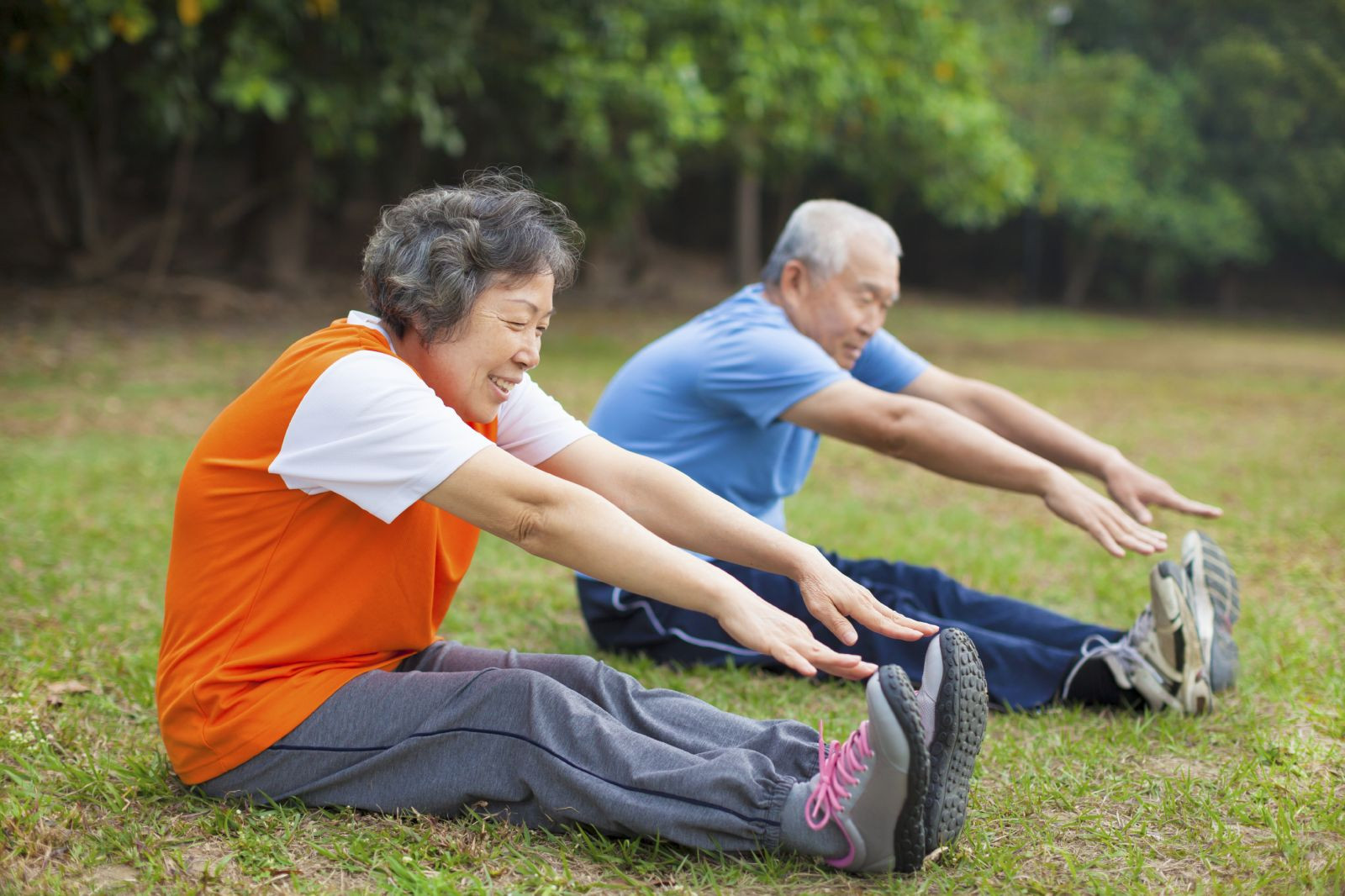 |
Six tips for safe stretches
 |
Virtually every activity you do relies on ease of motion. Stretching can help in numerous ways. It can often relieve back pain, stiff necks, and sore knees when tight muscles are to blame. It can counteract too much sitting whether you're doing it for work or a pleasurable activity. If you're a runner, a tennis player, a golfer, a hiker, or a biker, the right stretching program may set you on a path toward better performance. And as you age, stretching can help keep you active and flexible, making it easier to accomplish innumerable everyday tasks involving walking, climbing stairs, or reaching.
While it's tempting to skip right to the stretches, it's best to think about safety first. These will help you make the best flexibility gains possible, while reducing your risk of injuries.
- Warm up first. Much like taffy, muscles stretch more easily when warm. It can be as simple as marching in place with arms swinging for five minutes or dancing to a few songs. Moist heat packs or a warm shower are effective first steps, too.
- Feel no pain. Stretch only to the point of mild tension, never to the point of pain. If a stretch hurts, stop immediately! Reset your position carefully, then try again. With time and practice, your flexibility will improve.
- Pay attention to posture and good form. Posture counts whether you're sitting, standing, or moving. Good form translates to better gains in flexibility and less likelihood of injury when stretching tight muscles.
- Focus on the muscle being stretched. You'll notice that one side of your body often is tighter than the other. Work on balancing this over time.
- Breathe. Breathe comfortably while stretching, or use yoga breathing. Whatever you do, don't hold your breath while you are holding a stretch.
- Practice often. You'll make the best gains if you stretch frequently—daily, or on as many days of the week as possible. At the very least, aim to do stretches two or three times a week.
To learn more about improving your flexibility, read Stretching, a Special Health Report from Harvard Medical School.
---------------------------------------------------------------------------------------------------
|
|
Additional News from Harvard Health PublishingHow much water should you be drinking each day? |
|
StretchingFeatured content:
Click here to read more » |
-----------------------------------------------------------------------------------------------
Dear Reader, Does it hurt to turn your head to see cars in the lane behind you? Do your knees and back feel stiff and achy? Is it difficult to reach the cereal on the top shelf or bend down to pick up something off the floor? Would you like to find an easy way to become more flexible, ease pain, improve your balance, and prevent falls that can threaten your independence? Then take a look at this report from Harvard Medical School — Stretching: 35 stretches to improve flexibility and reduce pain. With this Special Health Report, you’ll discover:
You’ll learn how stretching and flexibility can help you improve your balance and prevent falls. Plus, you’ll get photos of master trainer Josie Gardiner performing 35 different stretches, as well as her tips for how to customize them to your ability. You’ll find moves to boost overall flexibility and loosen up tight muscles, plus specific stretches to ease back pain, sore knees, and the neck and shoulder pain that comes from spending too much time sitting at a desk staring at a computer! To see how effective stretching can be, watch the video at right now. Plus, you’ll get a special section on the stretches that warm you up before your workout, and charts that detail which stretches are best for a variety of sports, like golf, tennis, cycling, walking, swimming, and more.
|
Click on these direct Globalcnet links and find specific information fast... DO IT NOW.
- How we Connect, How a connection works, click here
- Our many LIFE CONNECTIONS, click here
- BE SMART, HEALTH/LIFE Questions answerd, click here
- Current NEWS click this link
- LIFE CHALLENGES on your specific needs, conditions, thoughts for you,
or a friend, click on this link and look to your left
- Answers to 1000,s of Medical and Life QUSTIONS, click here
- HARVARD UNIVERSITY Health Information, click here
- WEDMD answers your medical questions, click here
- Alternative Medicine and HEALTH IDEAS, click here
- CRITICALhealth for Chronic Disease, click here
- 55+ Healthy Living ideas, click here
- PAIN MANAGEMENT, click here
- Holistic Health, Lifestyle Canges, Healthy Aging, click here
- Staying Healthy, click here
- Getting your life UNSTUCK, click here
- Using POSITIVE Pyscology for Happier Living, click here
- HOME PAGE 100's of additional places to visit, BE SMART, learn
and start you journey on the GlobalCnet enloy, click link
- Leave a Web Mail, a coment, question suggestions or just
to say hello. Was GlobalCnet helpful? Your ansers are all
appreciated, click here
----------------------------------------------------------------------------------------------------------------
The Vive Stretch Strap is great for yoga,
physical therapy & rehabilitation. It can help:
✓ Increase range of motion
✓ Prevent against injury
✓ Improve flexibility
Watch our video to see how you can use the strap to stretch your arms, legs, shoulders, back & more!
--------------------------------------------------------------------------------------------------------

